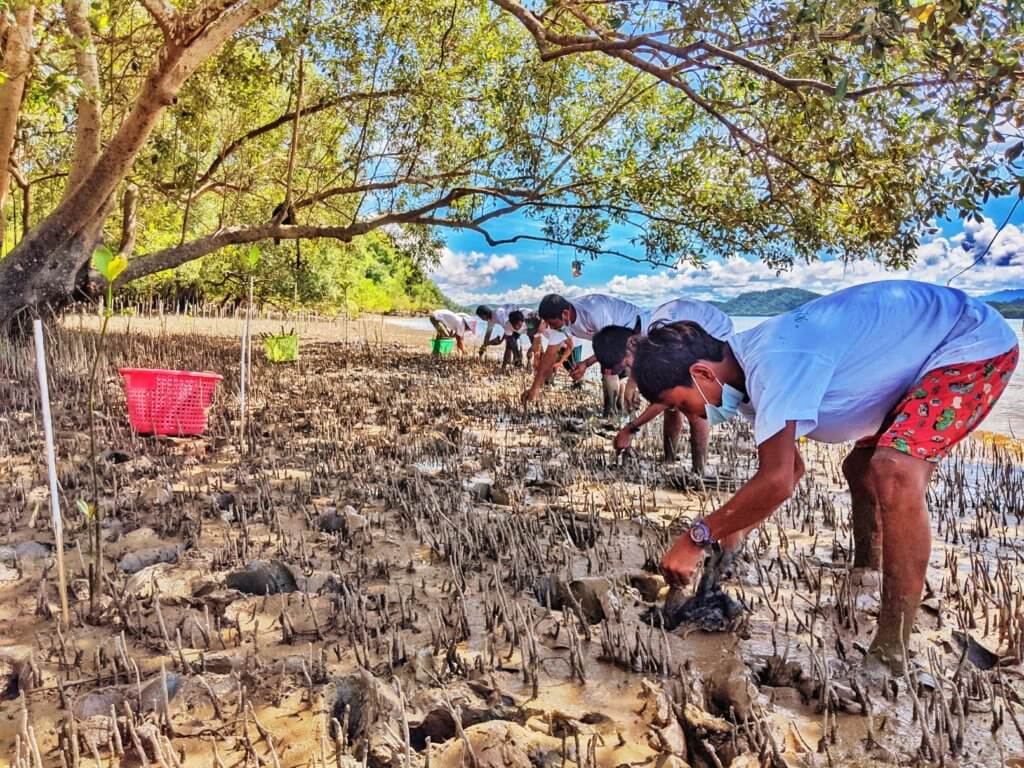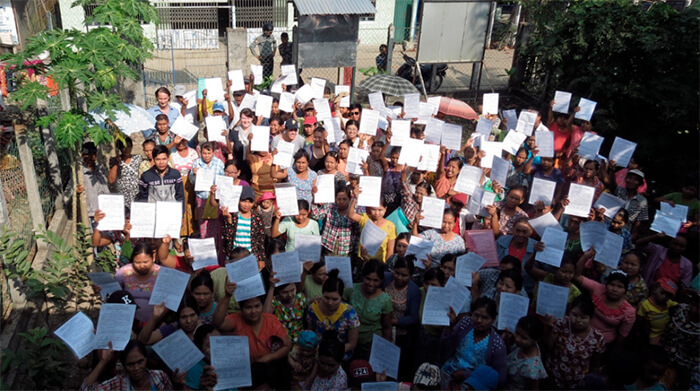2021: What A Year!
As we reflect on the past year, we consider the unprecedented challenges our world faced. We grieve for the terrible suffering caused by Covid-19, climate change, and extreme poverty. At the same time, we rejoice over progress made in the face of these challenges, bits of joy, rays of hope.
We continue to approach our work at King Philanthropies with humility, daunted by the tremendous need all around us but encouraged by the extraordinary impact of extraordinary leaders and organizations who toil with tenacity, resilience, and vision. We are honored to support and walk alongside so many tremendous people.
Looking back over the year, some key numbers highlight our progress:
444 thousand lives = The number of people in extreme poverty in whose lives King Philanthropies made a meaningful difference this past year, through our grants and investments in high performing organizations.
4.66 million lives = The cumulative number of people in extreme poverty in whose lives King Philanthropies has made a meaningful difference since our inception in 2016.
365 days = The number of days in 2021 in which Bob (and the team!) thought deeply about climate change.
1 new pillar! In 2021, we created a new grantmaking pillar called “Climate + Poverty”. Our Climate + Poverty initiative confronts climate change in ways that align with our mission to combat global poverty. The lens through which we view our new initiative is “turning data into action,” at the intersection of climate change and poverty. This springs from our belief that data by itself is insufficient to drive change; similarly, action that is not evidence-based and informed by data about “what works” is unlikely to generate the necessary massive impact at scale. King Philanthropies seeks to catalyze and turbocharge the effort to turn data into action through its funding to visionary and high performing organizations working in this space. This is essential because those in extreme poverty will be disproportionately affected by climate change, even though they did the least to cause it. Through our Climate + Poverty initiative, King Philanthropies invests in a variety of organizations that are focused on both mitigation and adaptation. Following are some highlights of our recent grants to address climate change and its effects on those in poverty:
– 45 percent projected reduction in oil and gas emissions by 2025 due to the MethaneSAT, a project of the Environmental Defense Fund (EDF). Our funding (through our Climate + Poverty initiative) promises to be catalytic in the fight against climate change. Methane emissions drive the rate of global warming in the short term more rapidly than any other greenhouse gas, so reducing them is critical if we are to avert catastrophic harm to vulnerable populations. EDF is developing what will become the most advanced methane tracking satellite in space. By generating publicly available data on worldwide methane emissions, MethaneSAT aims to catalyze global action.
– 25 million lives to be improved by 2030 throughThe King Climate Action Initiative (K-CAI) at Abdul Latif Jameel Poverty Action Lab at MIT. Now in its second year, K-CAI continues to make tremendous progress in supporting rigorous new research on effective programs and policies to tackle the four greatest climate-related challenges facing our world: climate change mitigation, pollution reduction, climate change adaptation, and energy access.
– 10 million students to be educated, empowered and activated to pursue climate solutions through The Climate Initiative (TCI), formerly the Kennebunkport Climate Initiative. In 2021, Bob dedicated significant time and expertise to working with TCI.
– 154 million trees planted by 2026 on smallholder farms across Sub-Saharan Africa through One Acre Fund. Planting trees alongside crops helps farmers by improving soil health, reducing erosion, and increasing water retention–all increasingly needed in the era of intensifying climate unpredictability. In addition, trees naturally sequester carbon and grow into long-term assets for farmers.
1.1 million girls living in rural Zimbabwe and Zambia will benefit from CAMFED’s programming through 2026. These girls will receive financial and socio-emotional support to complete secondary education, as well as access to newly developed climate education resources. Some CAMFED alumnae will also receive deeper training on climate-smart agricultural techniques to disseminate to their broader communities.
Millions of children suffer from hunger and malnutrition. In 2021, King Philanthropies made a large commitment to fighting food insecurity and malnutrition; we were struck by the magnitude of the problem and neglect by other donors. Malnutrition is the leading cause of death of children under five–responsible for 45 percent of deaths, in fact–and yet receives less than 1 percent of donor funding. Those who will be most affected by climate change are those in extreme poverty–who also suffer most significantly from malnutrition. Climate change gravely threatens their livelihoods in agriculture, their food security, and the nutritional status of their families; it is already pushing more people into extreme poverty, bringing new famines, and worsening malnutrition. We are delighted to make our first pilot grant in our new nutrition portfolio to Particles for Humanity to support their efforts to reduce vitamin A deficiency by fortifying food using microencapsulation technology.
21 thousand new jobs created and $421 million in capital raised to date by 675 enterprises who have partnered with Stanford SEED to create exponential growth and positive social impact. SEED partners with entrepreneurs in emerging economies and collaborates with business experts from the Stanford community to provide the entrepreneurs with high-touch coaching and consulting.
Thousands of people from 34 countries tuned in to virtual events at the Stanford King Center on Global Development to hear from experts on topics including climate change, precision health, and women’s empowerment in low and middle income countries. This past year, the King Center also supported a wide range of research by Stanford faculty, postdoctoral scholars and PhD students on topics that include entrepreneurship in emerging economies, water infrastructure in sub-Saharan Africa, political representation in South Asia, and access to higher education in Brazil, in addition to work on the ongoing effects of the pandemic.
12 King Scholars from Dartmouth joined Bob and Dottie in Maine for Thanksgiving! Joy! The King Scholars at Dartmouth, as well as the King-Morgridge Scholars at the University of Wisconsin and the Knight-Hennessy Scholars at Stanford, continue to give us inspiration and hope as we watch these extraordinary students prepare for leadership roles in their home countries.
Warmest wishes to all for the New Year!

